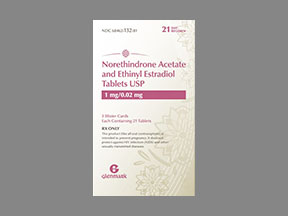Microgestin 1/20 is a limited distribution medication.

Microgestin 1/20 Coupons & Savings Card – Discount Prices from $7.49
Brand for: Norethindrone acet-ethinyl est
My prescription
Edit
1-20MG-MCG, Norethindrone Acet-ethinyl Est (21 Tablets)
Select pharmacy

CVS
$20.56
COUPON PRICE
Walmart
$7.49
COUPON PRICE
Walgreens
$11.16
COUPON PRICE
Albertsons
$11.68
COUPON PRICEMicrogestin 1/20 savings card
Show this card to your pharmacist
Walmart
$7.49
BIN
ID
PCN
GRP
019876
LH6B3628AB
CHIPPO
LHX
Powered by
Microgestin 1/20 (Norethindrone Acet-ethinyl Est) dosage forms
Dosage Quantity Price from Per unit 1-20MG-MCG 21 Tablets $7.49 $0.36 1-20MG-MCG 63 Tablets $21.47 $0.34
| Dosage | Quantity | Price from | Per unit |
|---|---|---|---|
| 1-20MG-MCG | 21 Tablets | $7.49 | $0.36 |
| 1-20MG-MCG | 63 Tablets | $21.47 | $0.34 |
Is Microgestin 1/20 a good birth control?
Microgestin 1/20 is a commonly prescribed oral contraceptive that many individuals find effective for preventing pregnancy. It contains a combination of estrogen and progestin, which work together to inhibit ovulation, thicken cervical mucus, and alter the uterine lining to prevent pregnancy. As with any medication, its effectiveness and suitability can vary based on individual health factors and needs. It is important for individuals to consult with their healthcare provider to determine if Microgestin 1/20 is the right choice for them, considering any potential side effects or contraindications.
Do you get a period on Microgestin?
When taking Microgestin, a combination oral contraceptive, it is common to experience a withdrawal bleed during the placebo week, which may resemble a period. However, some individuals may experience lighter bleeding or even skip the withdrawal bleed altogether. This can vary from person to person. If there are concerns about changes in bleeding patterns, it is advisable to consult a healthcare provider.
What is the generic for Microgestin?
The generic for Microgestin is a combination of norethindrone and ethinyl estradiol.
Are microgestin and loestrin the same thing?
Microgestin and Loestrin are both oral contraceptives that contain the same active ingredients, ethinyl estradiol and norethindrone. They are essentially the same in terms of their formulation and function, but they may be marketed under different brand names.
How much is Microgestin without insurance?
The cost of Microgestin without insurance can vary depending on the pharmacy and location. On average, the price may range from $20 to $50 for a one-month supply. It's advisable to check with local pharmacies for the most accurate pricing. Additionally, discount programs or coupons may be available to help reduce the cost.
